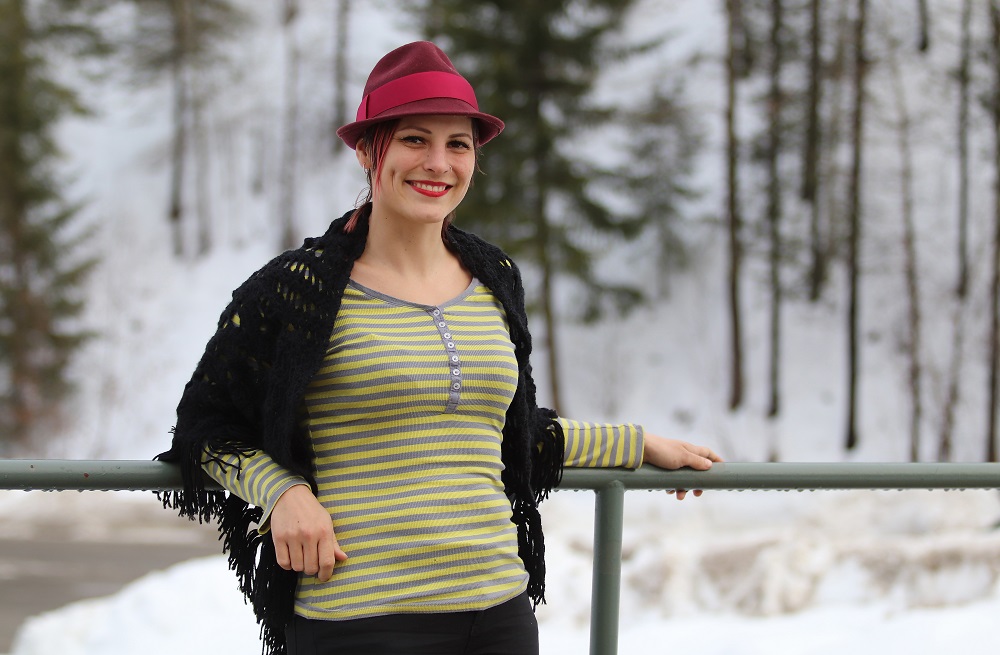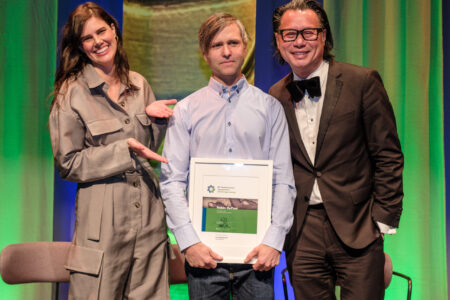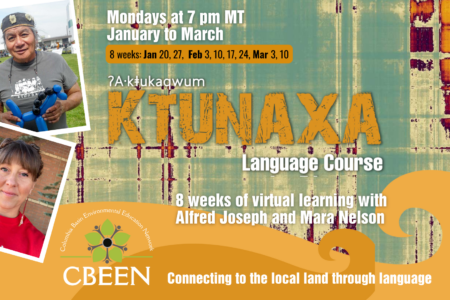Selkirk College Bursaries Supply Strength for Success
The journey for learners at Selkirk College is not one taken alone. Through the kindness of donors, students in all programs benefit from needs-based bursaries that help ease financial pressure and bolster final outcomes.
One month into her studies in the Recreation, Fish & Wildlife Program, Cheyanna Shypitka hit a crisis point. A single mom with two young children, the 37-year-old thought she put together a reasonable financial plan to carry her family through a two-year program with student loans and working 35 hours a week. It quickly became clear her plan to manage the tricky balance of home and school life had serious flaws.
“I almost dropped out… something had to give and it was going to be me,” Shypitka says of her rough start. “I was failing my classes and running on four hours of sleep a night, I was completely frazzled. I realized that how I arranged my life to prepare for school was not going to work, there just wasn’t enough hours in the day.”
Determined to get an education that could afford a brighter future for her 11-year-old daughter and eight-year old-son, Shypitka called in her support system. Retired from their careers in Fort St. John, her parents agreed to move to Castlegar to help on the home front. Shypitka then curtailed the hours she was putting in at her service industry job to focus on homework and connecting to classwork. Her semester was saved.
A Major Shift for a Brighter Future
Raised in Fort St. John, Shypitka moved to the West Kootenay after high school in search of a new life in a place where the creative edge meshed well with her interests. In 2001, she enroled in what was then known as Kootenay School of the Arts, the independent Nelson-based fine arts school that eventually came under the Selkirk College post-secondary umbrella in 2006. Shypitka started in the Writing Program and then switched to Jewelry & Small Object Design.
While attending art school, Shypitka fell in love with a Fine Woodworking Program student and they were soon married. Putting more focus on raising her two children than a career, when Shypitka’s marriage broke up two years ago, she was left with an unclear future. Seeking new knowledge and skills for a fulfilling career, she turned to Selkirk College for the answers.
“I had pretty much a blank slate to start from, I could take any direction… it was terrifying,” she says. “I wanted to do something that felt like help instead of hinder for my own community and the greater community. I was looking for something that would make me feel good about what I did everyday. The School of Environment & Geomatics was a natural choice.”
With a mortgage to pay and active children, Shypitka knew that transitioning into full-time student life would come with financial challenges. She took out a student loan and was confident she could continue to work full-time at her service industry job to pay the bills. Shypitka even figured she might be able to pay off her student loan before graduation.
As she entered the Recreation, Fish & Wildlife Program in September, Shypitka was excited to be embarking on a new adventure that included having her kids along for the ride.
“I wanted the ability to earn more income and a career that feels fulfilling, but that was secondary to wanting to do something that would make my kids proud and that made them realize the importance of school themselves,” she says.
Then the reality of an intensive outdoor-based program set in.
“When I started school, I vastly underestimated the time commitment that would be involved,” Shypitka says. “I understood in theory what full-time school would require, but had zero experience with it from a practical standpoint. My previous post-secondary education was all fine arts and had very little lecture time and very little out of class work.”
The Kindness of Strangers
Though Shypitka managed to avert a disastrous Fall Semester and found new focus in the classroom, cutting her work hours to only a pair of shifts a week came with financial consequences. To ease the pressure on her bottom line, Shypitka applied for bursaries. Receiving word early in the Winter Semester that she had been successful in earning six financial awards, the despair of that first month was erased.
Shypitka says she cried and then did cartwheels when she read the emails from the Selkirk College Financial Aid Department.
“It’s amazing to realize that people are that invested in the success of students, helping them in their careers and their dreams,” she says. “It’s true kindness to have strangers so invested in your well-being that they are willing to put forth sums of money to see your goals through. It’s really overwhelming.”
As she heads into the next few months of her education, Shypitka arrives to class more emboldened than ever.
“I am infinitely more confident than I was a few months ago,” she says. “I feel capable of handling the curveballs and intricacies of student life knowing that the stuff at home is taken care of. The extraneous stuff that otherwise would have been taking up space in my head isn’t anymore. I can focus more on my school and learning what I need to know to be successful when I graduate.”
Each year, Selkirk College awards $425,000 in bursaries and scholarships to help ease the pressure for learners in all programs. Donors and students gathered for the annual Selkirk College Bursary Tea at Mary Hall on Nelson’s Tenth Street Campus on February 1 where Shypitka spoke on behalf of award recipients. With bursaries now helping cover second semester expenses, Shypitka is grateful to those who give.
“Philanthropy of this sort brings communities together,” she says of the donors who fund the awards. “When people of various levels within their communities all work together to make everybody’s lives better, it does nothing but make everything exponentially greater. It fosters connection and connection is what is most missing from people’s lives these days. It’s essential for both emotional and mental well-being.”
























